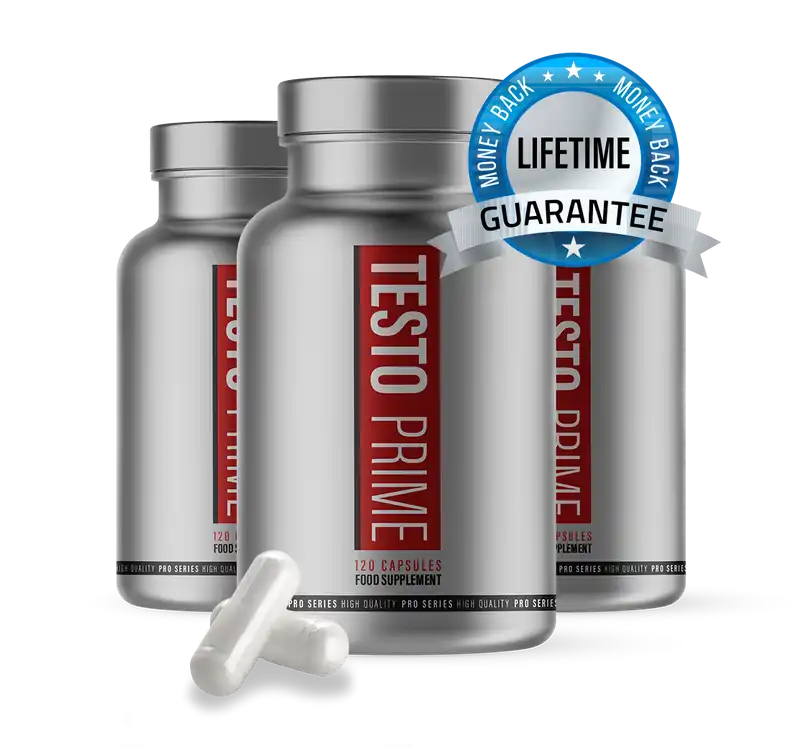Pycnogenol, a potent antioxidant derived from the bark of the French maritime pine tree, has been a subject of interest in the scientific community for its potential influence on testosterone levels.
This article aims to delve into the relationship between Pycnogenol and testosterone, drawing from a wealth of academic research to offer a comprehensive exploration.
Testosterone, a key hormone in the human body, plays a critical role in a range of physiological functions, including muscle development, mood regulation, and sexual health.
The factors influencing its levels in the body can range from age and lifestyle to specific health conditions and nutritional intake.
Could Pycnogenol be one of those influential factors?
Read on as we dissect the studies surrounding Pycnogenol, testosterone, and the question at hand: can pine bark raise testosterone levels?
What is Pine Bark Extract (Pycnogenol)?

Pine Bark Extract, often recognized by the trademarked name, Pycnogenol, is a dietary supplement derived from the bark of the French maritime pine tree (Pinus pinaster).
The extract is rich in bioflavonoids and procyanidins, which are potent antioxidants known for their robust health benefits.
Pycnogenol has been used in natural medicine for centuries, thanks to its impressive anti-inflammatory properties and its ability to improve blood circulation.
The question that remains, and the focus of this article, is whether this pine bark extract could have an impact on testosterone levels.
Pycnogenol and Testosterone

In this section, we will delve deeper into the intriguing relationship between Pycnogenol and testosterone.
We will examine a number of scientific studies that have attempted to explore this connection, and evaluate their findings in a comprehensive, unbiased manner.
Understanding the potential impact of Pycnogenol on testosterone levels could be key to unlocking further benefits of this natural supplement.
Let’s dive in.
Examination of studies on Pycnogenol and testosterone
The scientific inquiry into Pycnogenol’s potential impact on testosterone levels is relatively sparse, but a few studies have made noteworthy contributions.
A research article published in the Journal of Sex & Marital Therapy suggested that the combination of Pycnogenol, L-arginine and aspartic acid could improve sexual function in men, which indirectly indicates a possible impact on testosterone levels.
Another study published in the Phytotherapy Research Journal examined the effects of Pycnogenol on climacteric syndrome in perimenopausal women.
While this study does not directly link Pycnogenol to testosterone levels, it suggests that Pycnogenol may affect hormonal levels, potentially including testosterone.
It’s important to note, however, that these studies do not provide definitive evidence of Pycnogenol’s impact on testosterone levels.
More specific and detailed research may be required to fully understand the relationship between Pycnogenol and testosterone.
Can Pine Bark Raise Testosterone?

The question of whether pine bark extract, or Pycnogenol, can raise testosterone levels cannot be answered conclusively based on the existing studies.
The research indicating a potential indirect impact on testosterone levels suggests a possibility, but without direct evidence, the link remains speculative at best.
Numerous factors can influence testosterone levels, including age, nutrition, lifestyle, and overall health.
While Pycnogenol may contribute to overall well-being, which could indirectly influence testosterone levels, it is essential to remember that it isn’t a magic solution for boosting testosterone.
In light of the current research, there is a need for further well-structured and focused studies to explore the potential effects of Pycnogenol on testosterone levels.
Until then, it’s advisable to consult with a healthcare provider when considering Pycnogenol supplementation, especially for those seeking to influence their testosterone levels.
Pycnogenol and Rats

One potentially influential source of the belief that Pycnogenol can raise testosterone levels comes from studies conducted on rats.
Research published in the Journal of Veterinary Medical Science showed that administration of Pycnogenol significantly increased testosterone levels in male rats.
This has led some to infer a similar effect in humans.
However, it’s crucial to understand that results from animal studies cannot necessarily be extrapolated to humans due to significant physiological differences between species.
The way Pycnogenol interacts within the body of a rat can greatly differ from how it interacts within a human body.
The study’s results, while compelling, provide no definitive proof that Pycnogenol can increase testosterone in humans.
This leads us to question: Is this where the misunderstanding about the link between Pycnogenol and testosterone arises?
Could the findings from rat studies be fueling the speculation about Pycnogenol’s effect on human testosterone levels?
This underscores the need for more in-depth and specific human studies in this area.
What does Pycnogenol do for men?
While the effect of Pycnogenol on testosterone levels remains a subject of debate, the supplement does offer other potential benefits for men’s health.
Notably, there is some evidence to suggest that Pycnogenol may help with erectile dysfunction (ED).
A few studies indicate a potential improvement in erectile function with the use of Pycnogenol, possibly due to its antioxidant properties and its ability to improve blood circulation.
However, it’s important to underline that these findings are preliminary and the research is not conclusive.
At this stage, it’s difficult to definitively state that Pycnogenol offers any special benefits for men’s health, including its impact on erectile dysfunction.
More rigorous and comprehensive studies are needed to explore these potential benefits and to build a more robust understanding of the impact of Pycnogenol on men’s health.
As always, it’s recommended that men consult with their healthcare provider before beginning any new supplement regimen, including Pycnogenol.
Is pine bark extract a DHT blocker?
Dihydrotestosterone (DHT) is a hormone that’s often associated with hair loss in men.
Some believe that pine bark extract, or Pycnogenol, may act as a DHT blocker, which could potentially slow down or prevent hair loss.
There are some theories and preliminary research suggesting that Pycnogenol may affect DHT levels due to its strong antioxidant properties and its ability to inhibit certain enzymes.
However, it’s crucial to note that the research on Pycnogenol as a DHT blocker is currently limited and inconclusive, with most studies focusing on the extract’s cardiovascular benefits or its impact on inflammation.
In conclusion, while there are theories suggesting Pycnogenol may act as a DHT blocker, there isn’t enough scientific evidence to definitively support this claim.
As always, it’s advisable to consult with a healthcare provider before starting any new supplement, especially for those considering Pycnogenol for the purpose of blocking DHT.
Other Potential Benefits of Pycnogenol
While the impact of Pycnogenol on testosterone levels continues to be a subject of ongoing research, numerous studies have highlighted other potential benefits of this pine bark extract.
Ranging from improving cardiovascular health to enhancing skin health, Pycnogenol’s potential benefits extend across various aspects of wellness.
Let’s explore some of these research-backed benefits in more detail.
Benefits of Pycnogenol
- Cardiovascular Health: Several studies suggest that Pycnogenol may improve cardiovascular health by enhancing blood circulation and reducing cholesterol levels.
- Skin Health: Research indicates that Pycnogenol may enhance skin health by protecting against the harmful effects of UV radiation and reducing signs of aging.
- Cognitive Function: Some evidence suggests that Pycnogenol could boost cognitive function, improving attention, memory, and cognitive flexibility.
- Inflammation and Oxidative Stress: Pycnogenol exhibits potent anti-inflammatory effects and can help reduce oxidative stress, potentially lowering the risk of various chronic diseases.
- Diabetes Management: Early research suggests that Pycnogenol may help manage diabetes by improving blood sugar control and reducing the risk of complications.
- Asthma Control: Some studies have indicated that Pycnogenol could help manage asthma symptoms, possibly due to its anti-inflammatory properties.
- Menstrual Disorders: Limited research suggests that Pycnogenol may alleviate symptoms associated with menstrual disorders, possibly due to its potential influence on hormonal levels.
Remember, while Pycnogenol has demonstrated potential benefits in various areas, it is not a substitute for professional medical advice or treatment for specific medical conditions.
Always consult a healthcare provider before starting any new supplement regimen.
Side Effects of Pine Bark Extract
Pycnogenol is generally well-tolerated, but like any supplement, it can cause side effects in some individuals.
Here are some potential side effects to be aware of:
- Gastrointestinal Discomfort: Some people may experience stomach discomfort, nausea, or diarrhea when taking Pycnogenol.
- Headaches: Headaches have been reported by a small number of individuals taking this supplement.
- Dizziness: In rare cases, users have reported feeling dizzy after taking Pycnogenol.
- Mouth Ulcers: Some people have reported mouth ulcers as a side effect, although this is relatively rare.
- Allergic Reactions: As with any supplement, there is a risk of allergic reactions, which could include symptoms like rash, itching, or swelling.
- Interactions with Medications: Pycnogenol may interact with certain medications, including immunosuppressants, diabetes medications, and high blood pressure drugs.
Remember, these potential side effects are not a guarantee, and many people take Pycnogenol without experiencing any of these issues.
However, if you are considering taking Pycnogenol and have any concerns, it’s always best to consult a healthcare provider.
Conclusion: Can Pine Bark Extract Raise Testosterone Levels?
In conclusion, the potential of pine bark extract, Pycnogenol, to raise testosterone levels remains a subject of speculation and requires further research.
The existing studies indicate an indirect impact on testosterone levels, hinting at a possibility but not providing definitive evidence.
While Pycnogenol may influence overall well-being, which could indirectly affect testosterone levels, it’s not a proven solution for testosterone boosting.
Therefore, it remains imperative to consult a healthcare provider before initiating a Pycnogenol supplementation regimen, particularly for individuals seeking to influence their testosterone levels.
Meanwhile, research continues to explore the myriad potential benefits of this intriguing pine bark extract.
Frequently Asked Questions (FAQs)
Q1: What is Pycnogenol?
Pycnogenol is a natural supplement derived from the bark of the French maritime pine tree. It’s rich in antioxidants and has been associated with various potential health benefits.
Q2: Can Pine Bark extract raise testosterone levels?
The effects of Pycnogenol on testosterone levels are not yet fully understood. Some animal studies suggest it may raise testosterone levels, but there’s no definitive evidence to confirm this effect in humans. More research is needed.
Q3: Does Pycnogenol have other health benefits?
Yes, research has linked Pycnogenol to several potential health benefits, including improving cardiovascular health, enhancing skin health, boosting cognitive function, reducing inflammation and oxidative stress, managing diabetes, controlling asthma symptoms, and alleviating symptoms associated with menstrual disorders.
Q4: Are there any side effects of taking Pycnogenol?
Pycnogenol is generally well-tolerated, but some people may experience side effects like gastrointestinal discomfort, headaches, dizziness, mouth ulcers, or allergic reactions. It may also interact with certain medications.
Q5: Should I consult a healthcare provider before taking Pycnogenol?
Yes, it’s always a good idea to consult with a healthcare provider before taking any new supplement, including Pycnogenol, to ensure it’s safe and suitable for your specific health needs.
Q6: Is Pycnogenol a proven solution for boosting testosterone?
No, Pycnogenol is not a proven solution for boosting testosterone. While it may influence overall well-being, which could indirectly affect testosterone levels, more research is needed to confirm these effects.







